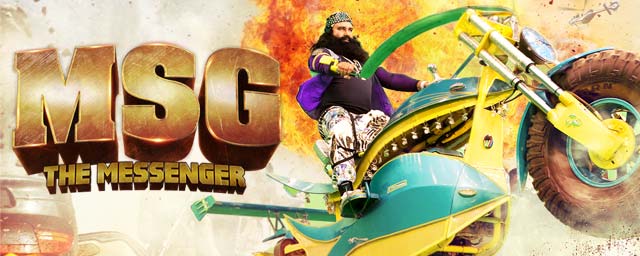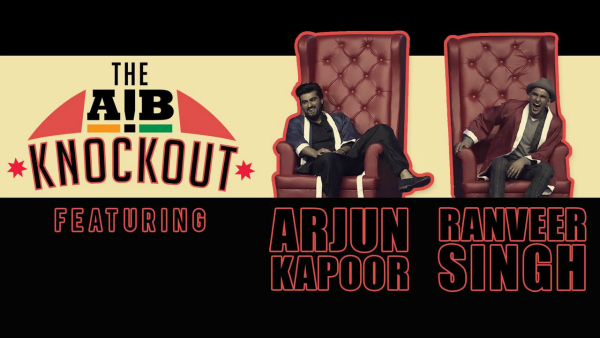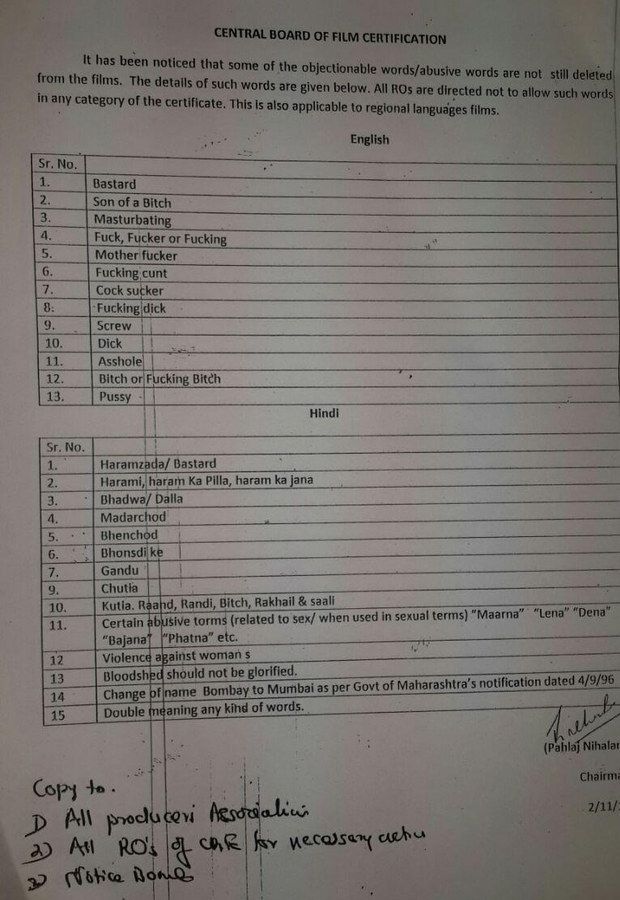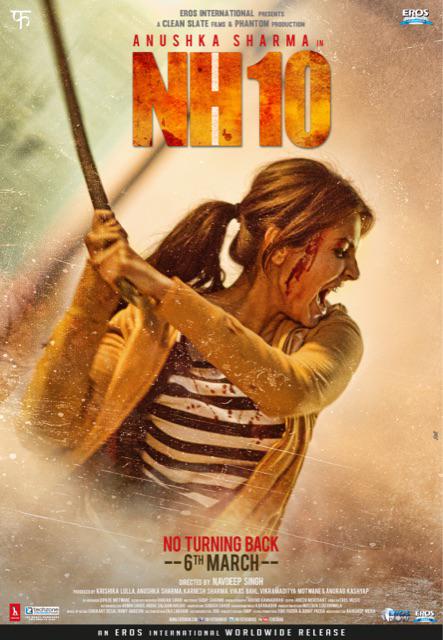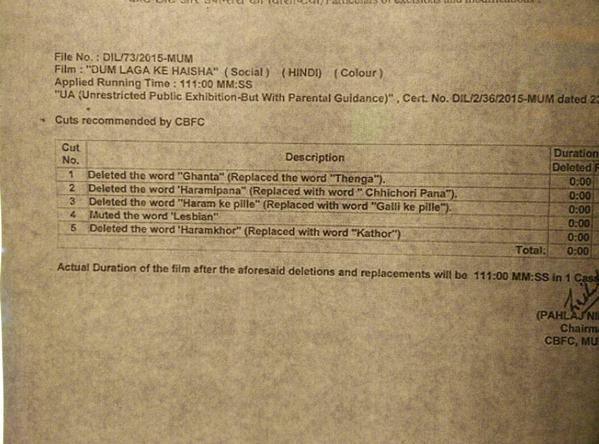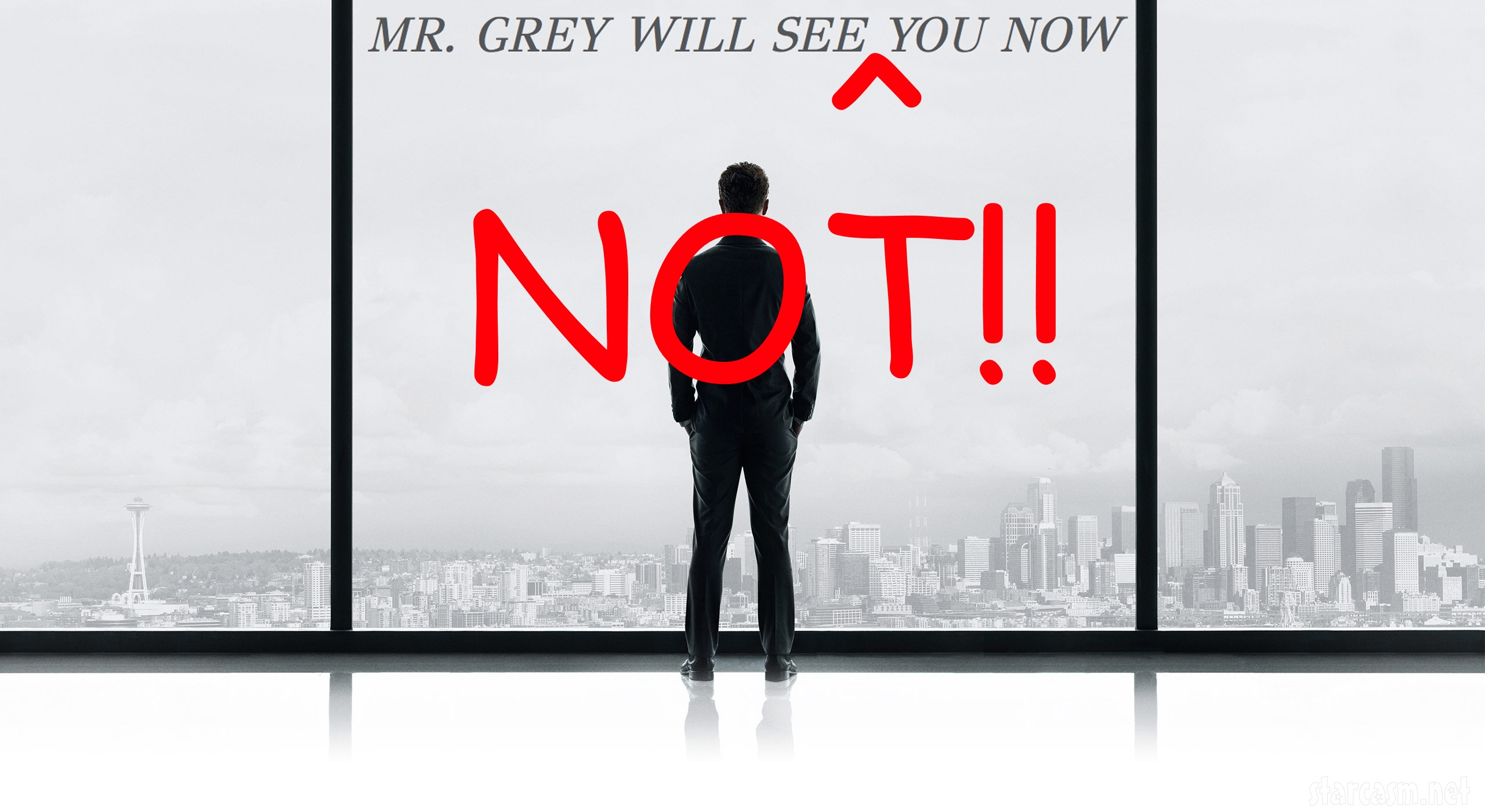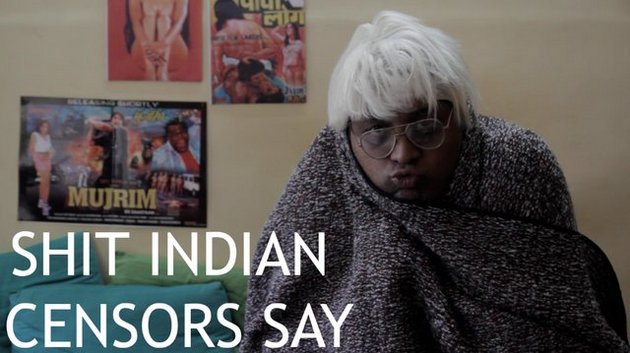You may recall the CBFC kerfuffle surrounding Saint Gurmeet Ram Rahim Singh Ji Insan's MSG: Messenger of God. The film was initially denied certification by the CBFC, but following the ban's lifting, the members of that board left en masse, only to be replaced by an even more restrictive group of government appointed Hindu moralist hardliners. As a result, the board has become so restrictive that even Bollywood's old guard are stepping up to ask why. Here's a brief rundown of recent events that have been giving progressive Indians reason to cringe over the last ten days.








The silly little film that started it all.
We've been covering MSG since it first burst into the news, and all of the ups and downs have been enough to make one's head spin. The gist of the matter is that the film was initially banned because the CBFC found it to have no artistic merit and observed that its only purpose was to advertise for its maker's cult. The film was denied certification initially.
Upon appeal, the official review board decided to grant it a certificate with a few minor edits. This outraged CBFC head Leela Samson so much that she stepped down, taking the entire board with her on the way out the door. When the new, more conservative, government stepped in to replace the board, they went hardline and installed a team of historically touchy film veterans who would go on to make more news in 30 days than most censor boards make in their entire tenures.
"The CBFC's ban was met with a challenge by the filmmakers, after which it was denied a certificate a second time. Following that challenge, the filmmakers took their challenge to the FCAT, who today came out with the plan that MSG would make a few voluntary cuts, no specifics on those yet, and be in cinema halls by next weekend, January 23rd. The news infuriated CBFC chairperson Leela Samson, who has accused the government of meddling in CBFC affairs. Samson tendered her resignation when the news went public, and it is expected that several CBFC members will follow her out the door."
The celebrity roast is a timeworn tradition in Hollywood. The idea is that a celebrity, or in this case a pair of celebs, volunteers to be taken down a peg by some close friends and comedians. These roasts are often vulgar and brash, at times they can even hint at being offensive, but everyone involved is always in on the joke, and in the end everyone shakes hands and goes on about their business.
Until now.
All India Bakchod, the foremost entertainment satirists in India, held what appeared to be India's first public roast of Arjun Kapoor and Ranveer Singh back in early February. The thing went off pretty much as anyone might have expected. Lots of vulgar jokes regarding their sexual partners, lots of jokes about their terrible movies, and a few gay jokes at the expense of the man hiding in what is probably India's largest closet, Karan Johar.
However, when the powers that be got a few complaints from some uptight Hindu nationalists, they decided to ban the video from being seen within India. It was really a matter of trying to squeeze toothpaste back into the tube, the video had already been viewed thousands of times. The cumulative effects on AIB, who are rising comedy stars in India, have been devastating. From being hit with lawsuits to being forced to cancel live performance tours, to being forced to apologize IN PERSON to the local Catholic diocese, AIB has really hit a low point in the aftermath.
The attorneys are still sussing out the long-term effects of the roast debacle, but the fact that the largest democracy in the world still enforces such draconian ideals is ridiculous and appalling.
Previously reported here via NDTV: AIB Knockout Participants, Organisers and Audiences Booked for Criminal Conspiracy
It doesn't end there; back to the CBFC.
On or about the middle of February, a cell phone image of an official list of banned words from the censorship board began to circulate online. Far from a fabrication, the board took pride in their work and insisted that they were going to clean up Indian cinema. Alongside the usual "7 words you can't say on television," the CBFC went even further, demarcating the list into English and Hindi sections.
Each section has its share of surprises, but it is the Hindi language list that is the most aggravating. The bulk of that list is reserved for Hindi curses and salty language, most on which is easily translatable to English (madarchod for motherfucker, gandu for asshole, and my favorite Hindi curse, bhenchod for sisterfucker). The last few items, however, border on comedic until you realize that they are completely serious. The CBFC insisted that films no longer refer to the city of Mumbai as Bombay, even though it is common among residents even 20 years after the official name change. That's bad enough, but the one that strikes me as particularly troubling is the ban regarding "double meanings [of] any kind of words." Now the CBFC was legislating witty writing and double entendre? How much more absurd can you get? (India's Censor Board Issues List of Cuss Words to be Banned From Films)
Thankfully, about a week later, after an intense session of debate, the CBFC officially withdrew the list. However, the words in question are still banned, just not explicitly as we'll see momentarily. (Censor Board's Banned List of 28 Cuss Words Put on Hold)
Navdeep Singh's NH10, a road thriller about a woman bent on avenging her husband on the NH10 freeway toward the Kashmiri border, hit a snag in receiving its CBFC clearance over language issues. An official decision was just reached yesterday, however the argument forced the film to move dates a couple of times now, and it has just now been cleared with a dreaded "A" certificate (the equivalent of an "R" from the MPAA, which is far, far less common in India). This wasn't without a fight, the CBFC asked for a reported 9 cuts to the submitted version before they'd approve it with the most restrictive rating they can get away with.
Producer and star Anushka Sharma went to bat for the film and she seems like a tough cookie. Her previous film work has been relatively lightweight and breezy, but she wants to make an impact, and if the film is cut or altered by the CBFC, that will definitely not make the impression she's intending to make.(Anushka Sharma's 'NH10' will release with 'A' certificate as Censor Board demands cuts)
Last week Yash Raj Films released the film Dum Laga Ke Haisha to much critical acclaim. The love story has been praised for its simplicity and earnestness, but that hasn't stopped the CBFC for delivering some baffling cuts in order to secure certification.
The above image is the actual listing of changes made to the film to secure a U/A rating (approximately equivalent to a PG-13 rating in the USA). The line changes are crude terms in Hindi, but it's the muting of the word "lesbian" in theatrical prints that has people up in arms.
The absurdity of the CBFC muting a scientific term like lesbian has not been lost on the Indian film community. It's not as if a harsh pejorative was used, this muting reeks of something more sinister than just cleaning up the language. Apparently, according to Moi Fight Club, a well-connected Bollywood film blog, the word was placed in such a way that it couldn't be muted, so the entire line of dialogue was excised from the film. What's even more troubling is that the CBFC has attempted to defend their position be insisting that it isn't the word itself that's offensive, it's the fact that the word was spoken by a child, inferring that a child calling someone a lesbian (even if they are) is inappropriate all on it's own. (WTF : The dreaded “Lesbian” bit in Dum Laga Ke Haisha)
Word came down this week that Fifty Shades of Grey, the film declared by ScreenAnarchy's Dr. Shelagh M. Rowan-Legg as "not that terrible," has been banned from cinema screens in India.
In what is just another day for the CBFC, the censor board decided that the film was not fit for the pure, virgin eyes and ears of Indian citizens. Even after the studio offered to recut the film to remove "offensive" language and nudity (still taboo in Indian cinema), the CBFC declined. The studio has the option of resubmitting or appealing the decision, but that is still up in the air. (Indian Censorship Authorities Ban Fifty Shades of Grey)
The CBFC didn't make clear its issues with the film, but the general consensus among followers of the organization is that it was the general tone of the film that spelled its doom.
The latest affront to the freedom of the people to make their own viewing choices has come against the BBC Storyville documentary, India's Daughter. The film explores the explosive Nirbhaya case, in which a young medical student was repeatedly gang raped by six men on a private bus and who eventually died from related injuries.
The opinion on this decision, however, seems to more divided among Indians than on the previous issues. Many Indian women have expressed concern about showing the film, as the most tawdry elements show an interview with one of the men convicted of her murder. The man expresses his belief that women are more to blame for rape than men, and that she should have stopped resisting if she didn't want to be hurt or killed. The idea behind those opposed to showing the film seems to be that it glorifies, or gives a platform to, the men behind this atrocious act, on top of potentially affecting the outcome of a case that hasn't made it all the way through the court systems (appeals are still pending).
However, many in India want the film to be shown exactly the way it is as a method of highlighting this pervasive issue in India. While the film was banned in India, it quickly made its way to YouTube where it was seen by thousands of people around the world. As the BBC has attempted to restrict access to their proprietary property, India's Daughter has become a Hydra, sprouting six new heads for every one cut off.
Mostly, the issue has been seen as another example of the draconian system of censorship, even though it wasn't the CBFC that made the decision to ban the film in India, it was the nation's courts who banned the broadcast and upload of the film. As a matter of copyright, I can understand the BBC's claims to keep the film off of YouTube, but as a matter of an open media, I went and watched it as soon as possible. It is truly heartbreaking and eye-opening.
This story has even been covered in the venerable New York Times, here: Broadcast of India Gang Rape Documentary Is Banned by Court
Now, to cleanse the palate, an oldie but a goodie.
This video, written by Varun Grover (lyricist on several Anurag Kashyap projects and the acclaimed documentary Katiyabaaz) and directed by MIhir Desai (Aakra-Man) was a filmi take on the notoriously prickly CBFC that was made in the aftermath of the ubiquitous Shit White Girls Say YouTube sensation. Even though Desai's video is nearly two years old now (and was made to mock the previous, more liberal CBFC), it rings even more true today than it did then.
Shit Indian Censors Say (w/ English Subtitles) from Mihir Desai on Vimeo.

More about MSG: Messenger of God
Around the Internet
Recent Posts
Leading Voices in Global Cinema
- Peter Martin, Dallas, Texas
- Managing Editor
- Andrew Mack, Toronto, Canada
- Editor, News
- Ard Vijn, Rotterdam, The Netherlands
- Editor, Europe
- Benjamin Umstead, Los Angeles, California
- Editor, U.S.
- J Hurtado, Dallas, Texas
- Editor, U.S.
- James Marsh, Hong Kong, China
- Editor, Asia
- Michele "Izzy" Galgana, New England
- Editor, U.S.
- Ryland Aldrich, Los Angeles, California
- Editor, Festivals
- Shelagh Rowan-Legg
- Editor, Canada


